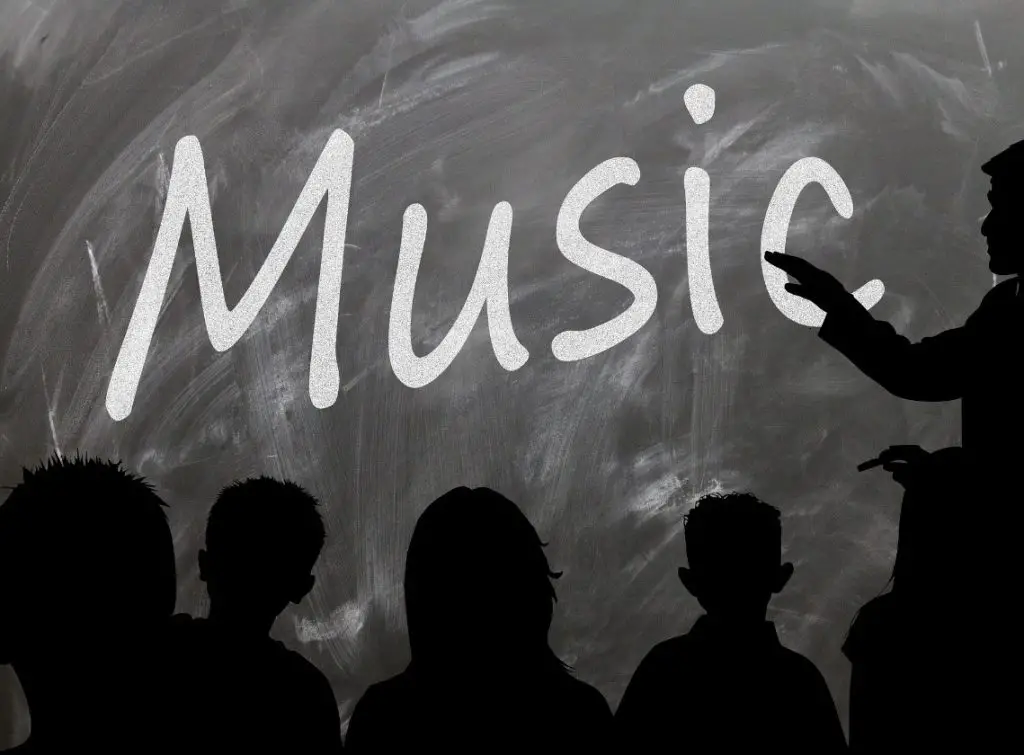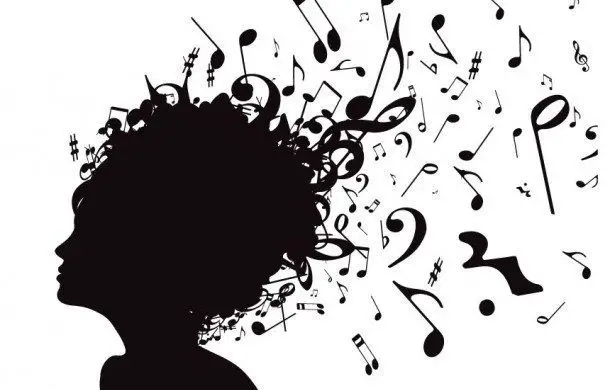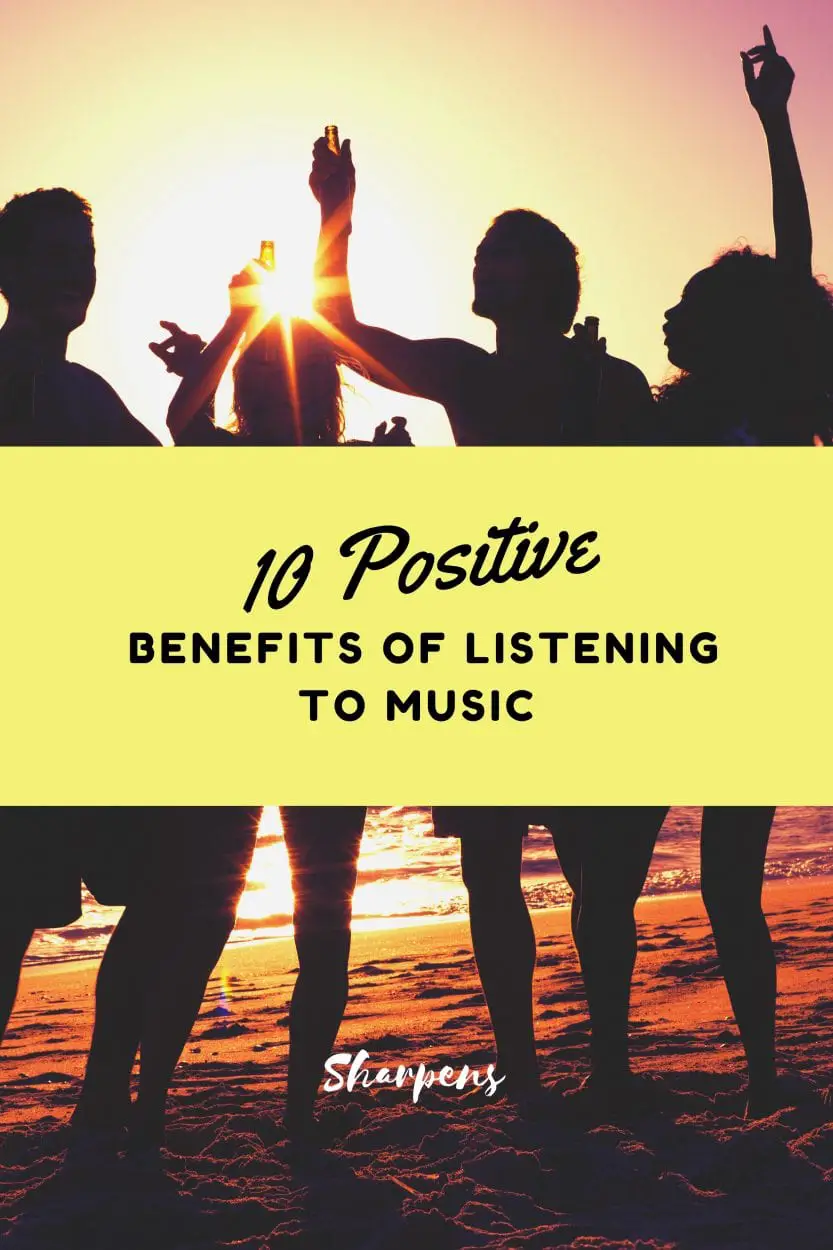Isn’t it amazing how listening to a specific song can bring back some memories and would make you feel so alive, calm, or energetic? Human is naturally gifted to determine the distinction between noise and music. The brain has various passageways for refining various sections of music counting in the pitch, tempo, rhythm, and melody. Upbeat music may heighten blood pressure, heart rate, as well as breathing. Slower music, on the other hand, appears to create the contrary result of upbeat music.
Although the impact of music on people is not completely understood, scientific studies have demonstrated that listening to a piece of music that you like will make the brain produce a chemical known as dopamine – a chemical that creates a pleasant effect on the mood. Music has the ability to make us feel extreme emotions like sadness, happiness, or fear. Based on the study of some researchers, music can have an influence on improving well-being and health.
The Origin of Music

There are plenty of theories that discuss where and when the music started. Certain historiographers think that music occurred even before the occurrence of humans. They have classified music into 6 eras. Every era is categorized by the modification in the style of music. These alterations have patterned the music we are fond of listening to now.
The very first era was the middle ages. This period symbolizes the start of the musical notations and polyphony. Polyphonic music and monophonic music were the two major kinds of music that were famous during that era. The next era developed a new kind of music known as organum. The next era was the Renaissance, wherein the holy music started to spread in different schools. It is also in this era that instrumental music and dance music were being performed hugely.
English madrigal also began to prosper during the late period of renaissance. After this, the Baroque age came. This period is characterized by various experiments done on music. Opera and instrumental music began to develop during this age. Classical age followed. The kind of music converted into basic melodies from the extreme ornamental music during the baroque age. Music that was composed during this era is called the Viennese style. Then came the Romantic age. During this period, the composers of music included very intimate emotions in their composition.
The composers began to utter their emotions through music. Now came the 20th-century music. This period is characterized by various improvements and modifications which were done in music. New kinds of music were composed. Technologies were also formulated, which improved music quality.
Understanding the Role of Music in our Life

Music is the ultimate creation formulated by a human. Creativity in the genuine and absolute form is the actual meaning of music. A lot of people have already realized the importance of music in their lives as it is a common method of conveying their feelings and also their emotions.
Some people treat music as a means to get away from the pain and struggles in life. If provides relief and lets you lower the stress you currently experience. Music is an effective therapy that works to make you feel calm, and when in a moment of joy, it will grant you the feeling of being cheerful.
Moreover, it improves the mind and develops self-confidence. Music delivers a more significant role in your life than merely being an origin of entertainment. Yes, you can be entertained by music, but there are plenty of reasons why you should adore music even more!
Why Music is Important?
Music is a lot more than how it is defined. Music occurs in everything that surrounds us. It can be seen in any part of the world. It guides people so they would be able to find themselves. It helps people overcome difficult moments. Music grants us a path to better express ourselves and displays our emotion deep inside that we do not normally allow people to see. The world recognizes the importance of music, and here are the common reasons why:
1. It is a method of expression
Music provides people a means to express their true personality through various patterns. Whether it be a singer, instrumentalist, or rapper, sharing music with others, being in a band along with other people, you can the real you through music.
Nowadays, a lot of people conceal their true personalities because they want to suit the preference of others because some individuals are scared that they will be rejected by the people that surround them if they show their real them. They simply keep themselves away from the crowd. Music is important since it provides people a means to reveal themselves.
2. It is a method of conversing how we feel
Music assists people in communicating their deepest feeling and emotion when they simply cannot find the right words to say. There are times in our lives that uttering our feeling to other people is simply difficult to do. However, with music, people can find the right words by either listening to various songs or composing songs. Music is important, knowing that it helps us use the right words to represent what we want to say.
3. It brings people together
Music can amazingly bring people together in various ways. Whether through similar preference in music, or the enthusiasm to get something new and unfamiliar, or even doing music with other people. A lot of people prefer similar styles or genres of music that are already obsolete. Being a member of a band or choir is another approach that utilizes music to bring people together. Music is important, knowing that people are brought together because of it.
4. It is present in everything
Music is present in any part of the world, and music associates with everything too. Music has been written in history ever since. It is also present in mathematics and science in various ways. Without the presence of music, life can be dull and boring. Music is most appreciated because it is felt everywhere.
Benefits of Listening to Music

Although more evaluations are yet to confirm the probable benefits of music towards health, certain studies imply that listening to music can do positive benefits:
1. Music develops happiness
This may appear obvious; however, the unrefined chemical reasoning is quite amazing to ponder upon. If you are in a stage wherein you badly need something that will boost you emotionally; you should know that it only requires around 15 minutes to listen to your favorite music to acquire a natural high. The brain produces dopamine, a kind of neurotransmitter which directs to improve feelings of excitement, happiness, and joy, once you listen to a piece of music that you are fond of.
2. Music lowers stress while improving the general health
Music develops an immediate effect on the hormones. Listening to your favorite music will trigger the lowering of the hormone cortisol, neutralizing the impacts of chronic stress. Around 60 percent of the entire diseases and illnesses are triggered by stress. Thus, reduced levels of stress would imply better chances of welfare.
Listening to music that is relaxing to the ear has been seen to lower anxiety and stress among healthy people and also to people who are going through medical procedures.
A study even demonstrated a result from a group of people that play different percussion instruments while singing. Their immune systems were boosted compared to those that were quietly listening. Although both groups showed favorable effects brought by music, the group of people who were playing instruments while singing exhibited better effects.
For ultimate benefits on a tiring day, play some music and sing together with the rhythm!
3. Music enhances sleep
Roughly over 30 percent of Americans are suffering from a condition called insomnia. A study has demonstrated that listening to a piece of music that is relaxing and classical one hour before going to sleep essentially enhances sleep, as contrasted to listening to a specific audiobook or merely doing nothing. Knowing that music can immediately affect our hormones, it can help if you play some wonderful music before lying in bed if you are longing to have a good sleep.
4. Music enhances exercise
Have you ever questioned why most people in the gym are playing music while they are exercising? Was there a time that you also wondered why they play the same kind of music? This behavior is being explained with the fact that music helps them do more exercises and for an extensive period of time. Studies imply that music will enhance physical stimulation, improve mental invigoration, improve general performance, and improve aerobic exercise.
There are several means of how music affects a person why exercising. As you may already know, music can make you feel calm; hence, you will be more at ease in executing a similar thing for an extensive period of time. Additionally, it grants you the encouragement to do a longer exercise.
The conclusion with exercising and music is that they are components that should always be linked to one another. Doing exercise without getting a piece of music to listen to will not be as effective if you choose to listen to music.
5. Music lowers depression
Music creates an immediate impact on the hormones. In fact, music can be treated as a kind of natural depressant because some tunes trigger the production of dopamine and serotonin in the brain, which directs to enhance emotions of happiness and welfare. It also produces norepinephrine – a kind of hormone that enforces a euphoric feeling.
Over 350 million people all over the world are suffering from depression, and 90 percent of these people also suffer from insomnia. The corresponding study discovered that manifestations of depression only lowered in people that listened to relaxing or classical music before lying in bed.
More studies also exhibited that some types of music can be helpful to people who have depressive manifestations. Amusingly, while relaxing and classical music improves positive moods, heavy metal can bring down people even more.
6. Music enhances the memory
Music is an efficient tool for improving memorizing skills. We all have experienced that we can easily familiarize a song and quite faster compared to familiarizing the syllabus. The reason behind is that the mind loves music. Thus, whatever the mind enjoys, it retains. This can be associated with the idea that whenever we have a great time of our life, that particular moment stays in mind forever and become a cherished memory. Hence, you should enjoy whatever you should learn.
Studies have demonstrated that the constant elements of melody and rhythm facilitate the brains to form a sequence that improves the memory. Listening to your favorite music will help you recall and adapt information more effectively, according to researchers. Although it relies on the degree to which music you like and whether you will play a musical instrument or not.
A study has demonstrated that musicians learned more effectively with neutral kind of music, however, tested better along with the music which they liked. While non-musicians learned more effectively with positive type of music, however, tested better with a piece of neutral music. Hence, the level of performance differs between memory and learning for musicians and those that are not.
7. Music improves verbal intelligence
A study has demonstrated that 90 percent of children aging 4 to 6 had essentially improved their verbal intelligence after taking only a month of music lessons, where they know about melody, pitch, rhythm, and voice. The output implies that training on music does a “transfer effect” which improve the ability of the children in comprehending words, and more impressively, explaining their meaning.
More studies showed the same outputs among adult women who are musically trained and children that surpassed a group with no training on music on verbal memory tests.
8. Music improves IQ as well as academic performances
Research implies that taking lessons on music determine in advance high IQ scores and academic performances among young children. This observation has been concluded after surveying children aging 6 years old who either took vocal or keyboard lessons for 36 weeks. The outputs displayed that they had essentially improved their IQ and regulated their results on educational tests during that time compared to children who took other activities that are not related to music. The group with singing activities displayed the biggest improvement.
9. Music improves the mood during driving
Anyone will agree that music helps us get a better mood as well as help us focus better if driving. Based on a study conducted in the Netherlands, music may positively benefit the mood during driving and wherefore direct to safer driving habits compared to if you are not listening to any music at all.
10. Music improves performance on running
Runners who engage in music and listen to either slow or fast motivation music finished the first 800 meters faster compared to those who chose to listen to calm music or not listen to any music at all. If you have the hobby of running, listening to a piece of music will improve your capability.
Conclusion
Other than the obvious objective of entertainment, music plays an important part in the lives of people. Music is an essential part of our lives, and that fact will never change no matter what happens. Even the elders have felt the importance of music during their young ages and up to their recent years.
Music has been present for the longest time. After learning the benefits of listening to music, you would agree that music offers numerous advantages to the mood and health of people. You would want to maximize the power of music by enjoying its benefits.
Music develops the brain as well as the aptitudes related to it. It is particularly beneficial in improving the skills of young children as well as in teaching them. Music therapy works effectively in treating serious and certain chronic illnesses. It is then recommended that you listen to music every day. Moreover, the kind of music you choose to listen to may have particularly positive benefits. This means that each kind of music can do a distinct effect on the health and emotion of a person.
Although music is widely appreciated because of its benefits, there are some considerations that people need to weigh when listening to music. People should be cautious about the kind of music they will choose to listen to. For instance, there are certain songs that contain vulgar language or offensive words that must not be exposed to the children.
Else ways, these words might retain in the mind of the children, which is obviously not ideal for them. Parents, in particular, should take the responsibility of choosing appropriate music so their children will not be influenced by unpleasant and disrespectful words. Nevertheless, overall, music poses positive benefits to all people and must be made a daily habit. You can still enjoy the advantages of music while choosing appropriate music.



